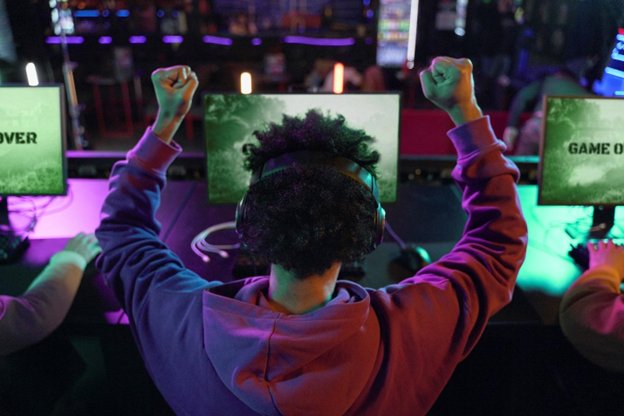With so many platforms vying for attention, the ability of an operator to keep players coming back, in the long run, is what determines whether their platform reigns in the iGaming industry or not, reinforcing the more profound importance of actionable strategies such as loyalty programs, reactivation workflows, and churn prediction. Data from research suggests that retaining an existing player is up to 5x less expensive than acquiring a new one, boosting profits by 25-95%.
Despite its importance, retention is not as easy as one might think, with operators facing a plethora of challenges, including high competition, versatile player behavior, and unexpected technical issues. And one thing about high-value players is that they do not fancy second chances. The discrepancy between what they have anticipated and what actually happens can lead to tremendous dissatisfaction, and ultimately, it provokes the decision to disengage or move on. In short, when the experience fails to meet their experience, players leave. No warning. No chance of coming back.
Addressing these challenges requires a multifaceted approach focused on creating a positive and engaging environment that encourages players to return and makes their time and effort feel worthy. Keep reading to find out more.

Collect Relevant Data To Understand Your Players Better And Offer Personalized Gaming Experiences
Collecting and analyzing player data is crucial for enhancing player retention, offering a wealth of information to optimize your platform and make it more attractive. Here’s a more detailed breakdown of metrics by which you can understand your players better:
- Daily active users (DAU) measure player engagement and platform activity trends, and they are crucial for assessing whether players are returning daily or dropping in interest.
- Session duration is also a powerful metric that complements DAU. It shows what players did, how long they stayed, and how immersed they were. Longer sessions indicate that players are enjoying their experience and are willing to invest time, while short sessions might suggest boredom, frustration, poor UX, or a misaligned gameplay loop.
- Games played per session are a micro-level metric that reflects how compelling and rewarding your game loop is. It signals when sessions feel tiring or unfulfilling, and matches are too long or too intense.
- Conversion rate reflects how well your games motivate commitment, helping shape personalization strategies, A/B testing for pricing and bundles, and the timing of special offers or sales events.
- The churn rate suggests where and why players are leaving so you can fix what needs improvement and build a healthier, more profitable game. High early churn often means bad onboarding, confusing UI, and a boring first-time experience, while later churn could signal a lack of content, unfair progression, and burnout from the grind.
- The bonus redemption rate reflects whether your rewards drive engagement, retention, and monetization. It highlights poor UX/UI, irrelevant or underwhelming options, and bad timing or placement.
Furthermore, we shall reinforce the importance of these metrics as a means to construct detailed player profiles and prioritize their behaviors, preferences, and gaming patterns. Many operators are now choosing to integrate software like pool betting to create a community-driven betting experience where players are essentially competing against each other rather than the bookmaker. Briefly explained, pool betting allows for greater potential rewards according to the number of participants, blending competition and chance in a way that keeps players coming back for more.
Develop Loyalty And VIP Programs That Reward Consistency
Casinos’ loyalty programs come into play as an excellent way for player retention. However, in an industry where competitors are making incremental moves and adjustments, you need to offer more than generic rewards and tiered VIP systems. Players expect nothing but the best, making their wish to feel valued very clear. Although one might usually interpret this expectation rather as an absurd behavior, as seeking appreciation within the casino environment signals a tendency to addiction, the show must go on. You have to give people what they want.
Furthermore, some of the most popular forms of loyalty programs include points-based systems, tiered rewards programs, challenge-based systems, and hybrid programs. As for the benefits implied in implementing this kind of incentive, there is enhanced player retention, increased LTV, strong brand loyalty, and actionable player insights. As an operator interested in whatever’s new in the iGaming industry, you should also know sportsbook software has become quite popular over the past few months, offering countless bonus types, exclusive in-house content, 140K+ pre-match events, and 70K+ live matches every month.
Prioritize Customer Support
In iGaming, you could reign supreme in matters of products and offers, but if the customer service fails to attain the highest industry standards, none of it matters. Players do not negotiate when feeling ignored or misunderstood, and sometimes, one bad experience is enough to make them leave for good. Today, the average attention span is less than that of a goldfish; if you want to retain your high-value players, you’ll need to prioritize support and offer multiple avenues for it. For instance, players tend to feel more connected to the game and the brand when being offered live chat options. Knowing they’ll be supported whenever needed, players feel more encouraged to return, overall reducing churn caused by frustrating support experience.
Furthermore, to connect with your players at a deeper level, your support team needs to do more than speak the correct language. They must understand how players from that specific region prefer to receive help, showing they genuinely appreciate the customer base. While some areas exclusively value fast, informal chats, others could never be satisfied without formal, structured assistance, reinforcing the more profound importance of cultural alignment as a means to build trust and improve satisfaction.
Overall, the gaming industry thrives on delivering unmatched convenience and support to players – because, if we’re being honest, what truly drives the industry’s growth and success if not the players themselves?”
